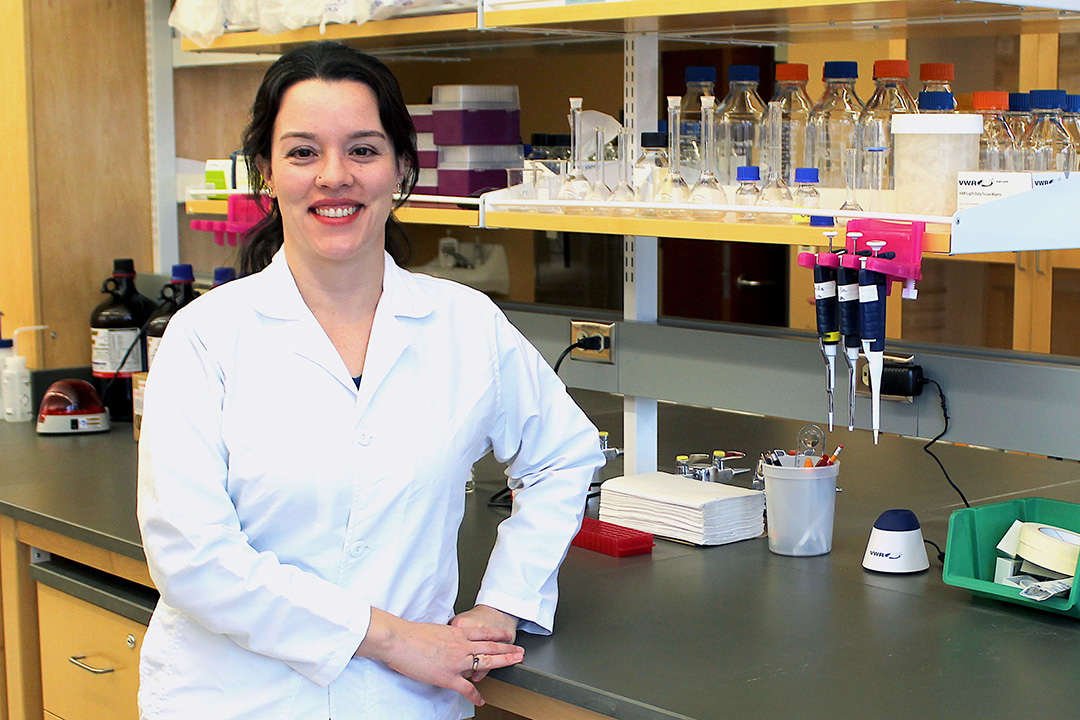
USask dental researcher to take part in prestigious international competition
For the first time, a University of Saskatchewan (USask) dental researcher has earned the right to compete in the world’s most prestigious international student research competition.
By Jenna FraserDr. Lina Marin (DDS, PhD), currently a post-doctoral fellow working with Dr. Walter Siqueira (DDS, PhD) in USask’s College of Dentistry, finished in first place in the Senior Basic Science category of the Canadian Association for Dental Research (CADR) – Network for Canadian Oral Health Research (NCOHR) Student Research Award competition.
Having been awarded first place, Marin has also been selected for entry in the International Association for Dental Research (IADR)/Unilever Hatton Competition on March 17, 2020, in Washington, D.C. The IADR Unilever Hatton Competition provides an opportunity for junior researchers to present their research at the annual IADR General Session, the largest gathering of dental researchers annually.
“I am happy that her effort was recognized with this award. Now, she will represent Canada at the Hatton competition, the most prestigious student research competition,” said Siqueira. “This is the first time a student from the USask College of Dentistry has won first place and had the opportunity to participate in the Hatton.”
When Marin attends the IADR/Unilever Hatton Competition in March, she will be representing Canada in a global research competition.
“I’m from Colombia, and I have this opportunity to represent Canada and that’s a big, big responsibility for me. I feel very honoured to be representing Latin women in Canada, because we are a minority here and in the scientific field,” Marin said. “It’s very exciting. It’s also a reward for all of the work that I did. It was a lot of work.”
Marin’s research is focused on finding additional therapeutic strategies to prevent tooth decay, which is one of the biggest health problems in Canada and worldwide. As dental plaque forms on teeth, it consumes dietary sugars and produces acids which leads to tooth decay. Marin took multiple engineered peptides that were identified and created based on different proteins found in saliva and applied them to tooth enamel. She then started the process of forming plaque on the enamel to see what, if any, affect the different engineered peptides would have on teeth.
Marin’s research found that one of the engineered peptides protected the tooth enamel against demineralization, and subsequently slowed down the decay process. While still in the early phases, future applications of her research would be to use the peptides in a varnish or mouthwash to prevent dental caries (tooth decay) in the population.
“As her mentor, I am very proud of Lina’s achievement; her studies could guide to a new way to prevent and treat tooth decay,” said Siqueira.

